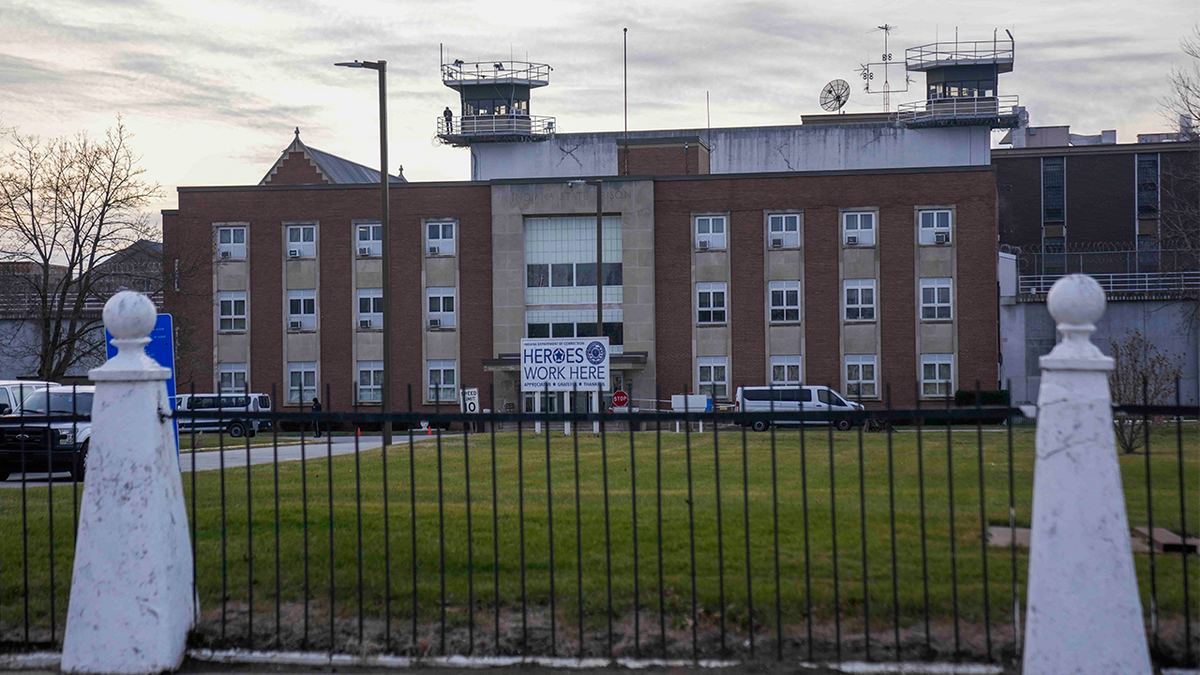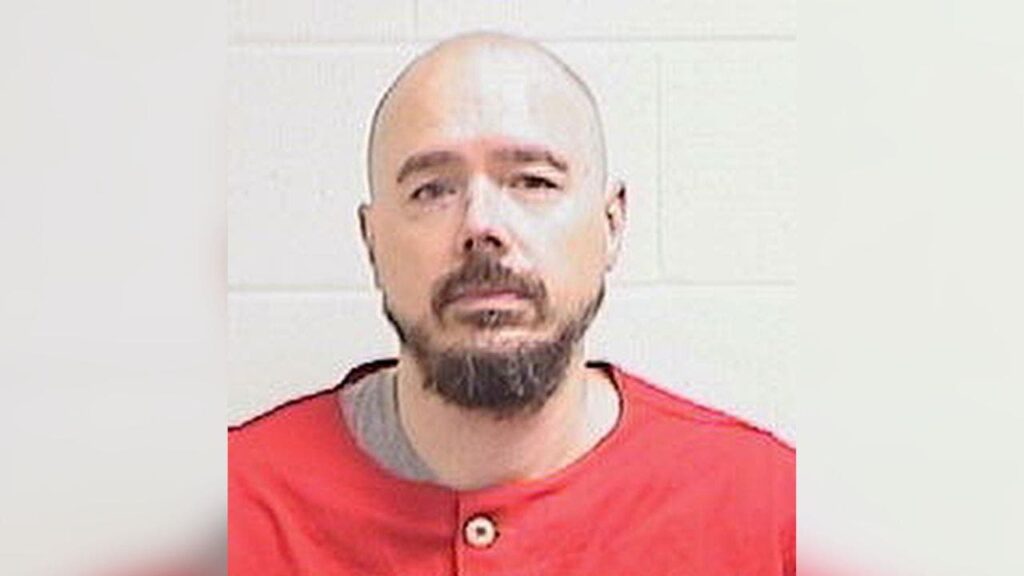An Indiana man convicted in the 1997 killing of four people including his brother and his sister’s fiancé was put to death on Wednesday in the state’s first execution in 15 years.
Joseph Corcoran, 49, was pronounced dead at 12:44 a.m. CST at the Indiana State Prison in Michigan City, Indiana, according to the Indiana Department of Correction, making it the 24th execution in the U.S. this year. He was scheduled to be executed with the powerful sedative pentobarbital, although officials did not mention that drug in their statement.
Prison officials said his last meal was Ben & Jerry’s ice cream.
Corcoran was convicted in the July 1997 shootings of his brother, 30-year-old James Corcoran; his sister’s fiancé, 32-year-old Robert Scott Turner, and two other men, 30-year-old Timothy G. Bricker and 30-year-old Douglas A. Stillwell.
INDIANA TO CARRY OUT FIRST STATE EXECUTION IN 15 YEARS

Joseph Corcoran, 49, was pronounced dead at 12:44 a.m. CST at the Indiana State Prison in Michigan City, Indiana. (Indiana Department of Corrections via AP)
Prior to the shooting, Corcoran was under stress because his sister’s upcoming marriage would require moving out of the home in Fort Wayne, Indiana, that he shared with his brother and sister, according to court records.
During his time in jail for those killings, Corcoran reportedly bragged about shooting and killing his parents in 1992 in northern Indiana’s Steuben County, for which he was charged but later acquitted.
The execution on Wednesday comes after Gov. Eric Holcomb, a Republican, announced plans in June to resume state executions following a 15-year hiatus caused by difficulty obtaining lethal injection drugs.
The state provided limited details about the execution process, and no members of the press were allowed as witnesses under state law. But Corcoran chose a reporter for the Indiana Capital Chronicle as one of his witnesses.
Indiana and Wyoming are the only two states in the country that do not allow members of the media to witness state executions, according to the Death Penalty Information Center.
Corcoran’s attorneys had challenged his death penalty sentence for years, claiming he was severely mentally ill, which affected his ability to understand and make decisions. Earlier this month, the state Supreme Court rejected a request from his attorneys to stop his execution.
He had exhausted his federal appeals in 2016, but his attorneys asked the U.S. District Court of Northern Indiana last week to halt his execution and hold a hearing to decide if it would be unconstitutional since Corcoran has a serious mental illness. The court refused to intervene on Friday, followed by another denied request on Tuesday from the U.S. Court of Appeals for the 7th Circuit.
Corcoran’s attorneys then made a final plea and urged the U.S. Supreme Court to issue an emergency order blocking his execution, but it also denied their request for a stay late Tuesday.
Defense attorney Larry Komp said he was disappointed with the high court’s ruling, saying that the issue surrounding Corcoran’s mental health was not properly examined.
INDIANA SEEKS TO CARRY OUT FIRST EXECUTION IN 15 YEARS AFTER OBTAINING LETHAL INJECTION DRUG

Joseph Corcoran is led to the City-County Lockup on Aug. 26, 1999, in Fort Wayne, Indiana, after being sentenced to death in the slayings of four people in July 1997. (Matt Sullivan/The Journal-Gazette via AP)
“There has never been a hearing to determine whether he is competent to be executed,” Komp said in a statement to The Associated Press. “It is an absolute failure for the rule of law to have an execution when the law and proper processes were not followed.”
Corcoran’s only remaining option to extend his life after the legal challenges became Holcomb, who could have commuted Corcoran’s death sentence but elected not to.
Holcomb’s office released a statement Wednesday after Corcoran was put to death.
“Joseph Corcoran’s case has been reviewed repeatedly over the last 25 years – including 7 times by the Indiana Supreme Court and 3 times by the U.S. Supreme Court, the most recent of which was tonight,” Holcomb said. “His sentence has never been overturned and was carried out as ordered by the court.”
Indiana’s last state execution was carried out in 2009 when Matthew Wrinkles was put to death for killing his wife, her brother and sister-in-law in 1994. Since that time, 13 executions have been carried out in the state, but those were initiated and performed by federal officials in 2020 and 2021 at a federal prison.
State officials have said they could not resume executions because the combination of drugs used in lethal injections were unavailable.
There has been a shortage of the drugs across the country for years because pharmaceutical companies have refused to sell them for executions, which forced states, including Indiana, to use compounding pharmacies, which make drugs specifically for clients. Some of these pharmacies use more accessible drugs such as the sedatives pentobarbital or midazolam, both which critics argue can cause intense pain.
At midnight, a group of anti-death penalty activists began singing “Amazing Grace.”
Religious groups, disability rights advocates and others have opposed Corcoran’s execution. About a dozen people, including some who were holding candles, held a vigil late Tuesday to pray outside the prison.

The sun sets behind Indiana State Prison on Tuesday, Dec. 17, 2024, in Michigan City, Indiana. (AP)
“We can build a society without giving governmental authorities the right to execute their own citizens,” Bishop Robert McClory of the Diocese of Gary, who led the prayers, said.
Other death penalty opponents also held protests outside the prison Tuesday night, with some holding signs that read “Execution Is Not The Solution” and “Remember The Victims But Not With More Killing.”
CLICK HERE TO GET THE FOX NEWS APP
“There is no need and no benefit from this execution. It’s all show,” Death Penalty Action director Abraham Borowitz, whose organization protests every execution in the U.S., said.
Corcoran’s wife, Tahina Corcoran, told reporters outside the prison her husband was “very mentally ill” and she did not think he fully understood what was happening to him.
“He is in shock. He doesn’t understand,” she said.
The Associated Press contributed to this report.







